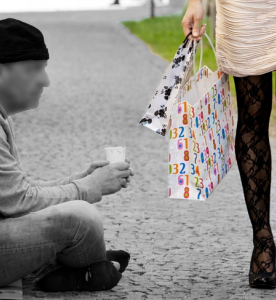Hierarchy ranked above equality
 Research says our desire to reduce inequality is not as strong as our desire to maintain social hierarchies.
Research says our desire to reduce inequality is not as strong as our desire to maintain social hierarchies.
People dislike economic inequality, but are unwilling to redistribute money so that those with more receive less and those with less receive more, hence overturning the existing wealth hierarchy, reports a paper published this week in Nature Human Behaviour.
The findings suggest that preserving rank can be as much a social norm for people as rejecting unequal treatment.
Previous studies have shown that people reject unequal payments in economic games and suggest that a desire for equality is a social norm that crosses cultural boundaries.
Despite this evidence, however, income inequality persists, suggesting that other factors may be at play.
Xinyue Zhou and colleagues conducted a series of cross-cultural economic games to test how rank affects people’s willingness to equalise payments between two individuals.
They found that although the majority of participants chose to redistribute funds from rich to poor when the overall hierarchy would not change (rich become poorer, but still have more; poor become richer, but still have less), most participants were unwilling to do so when that would mean reversing the rank of the two individuals (rich become poorer and now have the least; poor become richer and now have the most).
Repeat experiments with children revealed that inequality aversion was present from the age of four years, but rank reversal aversion was not evident until age six years, suggesting that this norm is learned later in development.
The experts say research of this kind improves our understanding of the individual-level beliefs and behaviours that allow inequality to persist.








 Print
Print